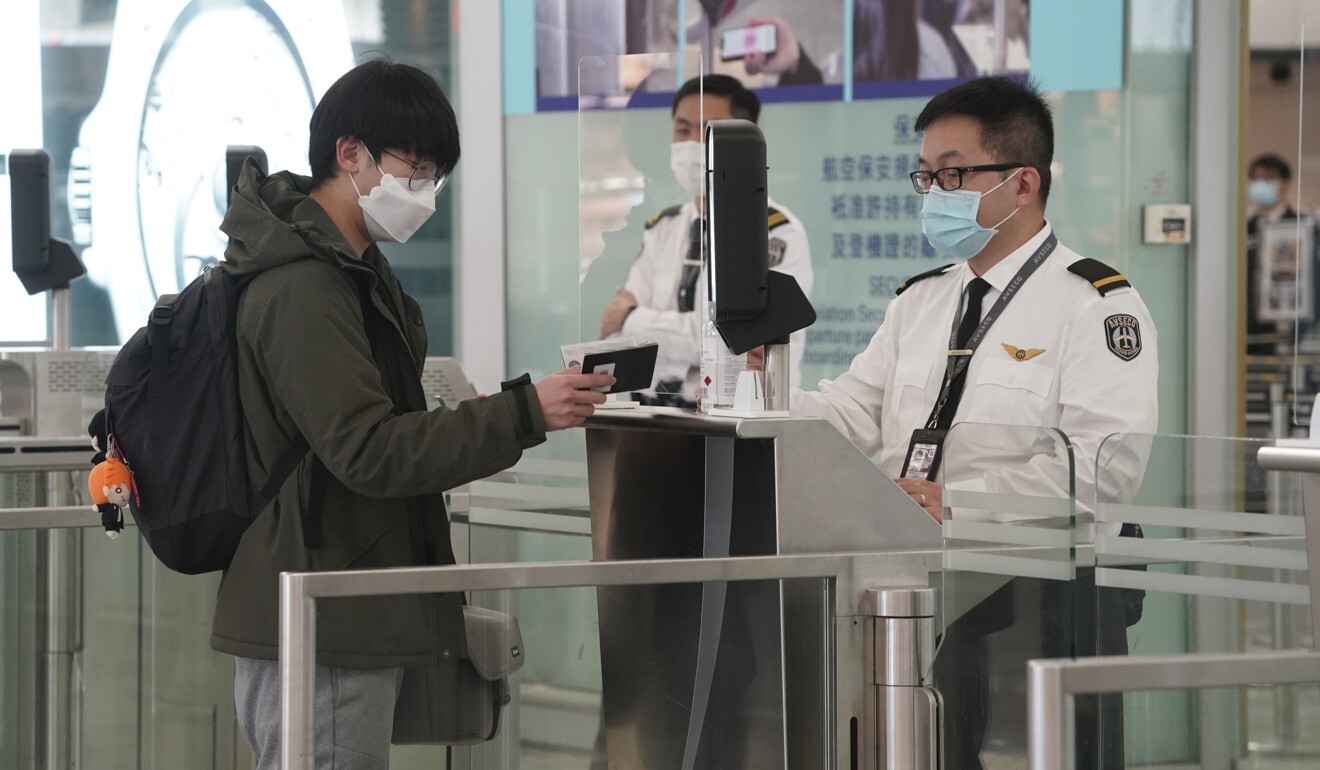
Hong Kong BN(O): Beijing blasts Britain as application process begins; families torn between moving together or leaving one parent behind to make money
- As the scheme kicked off on Sunday, some families were deciding whether to head to Britain together or have one adult remain to continue earning money
- Some are worried about breaking up the household, but finding a job after arriving is far from certain
Officials accused Britain of breaching past promises by offering a pathway to eventual citizenship for Hong Kong residents.
Shortly after the registration went live, Home Secretary Priti Patel tweeted: “This is a proud day in our strong historic relationship as we honour our promise to the people of Hong Kong.”
But in a statement soon after on its website, the cabinet-level Hong Kong and Macau Affairs Office issued a “strong condemnation” of the move, accusing London of turning swathes of Hongkongers into its “second-class citizens”.

06:15
BN(O) passport holders flee Hong Kong for new life in the UK, fearing Beijing’s tightening control
The office said the policy amounted to a breach of the Sino-British Joint Declaration, a treaty signed by both countries in 1984 which set out the ground rules for Hong Kong’s development after its return to China in 1997.
“The British side did not keep its promise … and even brazenly claim it was out of its respect for its historical relationship and friendship with Hong Kong to beautify its history of invasion and colonisation,” it said.
“This is the logic of a brazen bandit. This is an open affront to the sovereignty of China. We sternly oppose that.”
Beijing’s liaison office in Hong Kong also accused Britain of violating China’s sovereignty and international law.
According to the British government’s website, applicants must fill in various details, such as their contact numbers and email addresses, and submit proof of documents to back their registration.
BN(O) ticket: Britain opens doors to Hong Kong residents, but not everyone can walk in
There was no official word on Sunday as to how many had applied. Some people the Post spoke to had reservations at signing up, with applicants required to leave their fingerprints at the British government’s visa centre in North Point.
Instead, they said they would wait until February 23, when the British government was expected to launch a one-stop smartphone app to process applications.
There was confusion too at Hong Kong International Airport, as travellers, ground staff, and airlines adjusted to instructions from Hong Kong’s Immigration Department not to recognise BN(O) passports.
The British government first announced its plan to take in the city’s 5.4 million residents with BN(O) status in July last year, shortly after the national security law took effect.
An investment banker, who asked to be referred to as Sam Lau, said he was determined to leave Hong Kong by March, and planned to apply when the mobile app was launched.
It will be able to read biometric chips on BN(O), HKSAR and EU passports, meaning applicants will not be required to visit the North Point centre to submit their fingerprints.
Lau was concerned leaving his fingerprints would mean the visa centre could “sell his data” to the Hong Kong government.
Another man, who gave his family name Lam, feared retribution from local authorities if he was spotted entering the visa centre.
“How can I be sure there will not be people outside filming?” said the 38-year-old, whose partner moved to Britain last year.
BN(O) visa to allow staggered arrivals of successful family applicants
The visa scheme has also left some Hong Kong families weighing whether to move one parent over to Britain with their children while the other stays in the city to earn money. The arrangement is viewed as providing flexibility, although it also leaves some families with a dilemma.
Some said they preferred to have the entire family make the move together to ensure no one was left behind, despite concerns about job prospects in Britain.
While children under 18 need to apply with both of their parents, one of them is allowed to stay in Hong Kong to work.
Some parents said they appreciated the flexibility, but worried they might struggle to find a job in Britain, where the unemployment rate stood at 4.9 per cent and was expected to rise to 7.5 per cent by the middle of the year, according to an official forecast.
“If I move to Britain with my daughter first, I am worried that I can’t get used to not having my husband around me,” a 38-year-old mother said. “The political status quo in Hong Kong is bad. But a complete family is important for my daughter’s childhood.”

The woman, who did not want to be identified, would prefer the family to move together even without a job secured in advance.
The new visa will allow everyone with BN(O) status and their dependants to stay in the country for up to five years, with the right to work and study, and to apply for citizenship after six years. Public education is free for those under 18 years old, so parents wanting an overseas education for their children will have another option aside from costly boarding schools.
Last October, the British government estimated more than 1 million Hongkongers might emigrate over the next five years, although that was at the extreme end of the forecast. A more likely number is about 320,000.
Additional reporting by Laura Westbrook and Rachel Yeo


